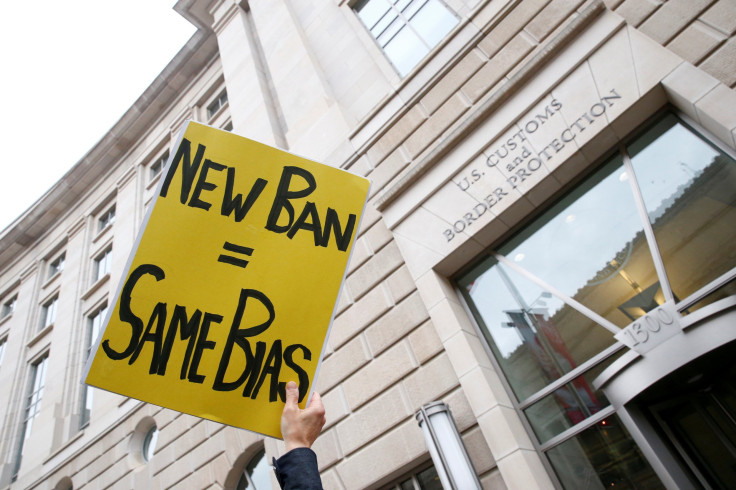Trump Travel Ban: Toronto Cancels School Trips To US Because Of Executive Order

Canada’s largest school board announced Thursday it was canceling all future school trips to the United States over “uncertainty” surrounding President Donald Trump’s travel ban. The Toronto District School Board, which oversees close to 246,000 students in 584 schools in Canada’s largest city, made the decision as Trump’s latest executive order restricting travel remains suspended by the courts.
“While the court challenges have stopped the implementation of the Executive Order, there continues to be uncertainty surrounding these new restrictions—specifically with regards to who may be impacted and when,” John Malloy, director of education, said in a statement. “With this in mind, the Toronto District School Board is now faced with a difficult choice."
The school board opted against canceling trips that have already been booked because of the significant financial and personal cost to students. However, it cautioned that should the executive order be fully implemented then those trips, which number 24 and involve some 800 students, would also be halted.
“We do not make this decision lightly, but given the uncertainty of these new travel restrictions and when they may come into effect, if at all, we strongly believe that our students should not be placed into these situations of potentially being turned away at the border," Malloy said. “The TDSB remains committed to ensuring that fairness, equity, and inclusion are essential principles of our school system and are integrated into all our policies, programs, operations, and practices, including school trips.”
After his first executive order travel ban was halted by federal courts, Trump signed a revised version earlier this month. The order barred arrivals of nationals from Iran, Libya, Somalia, Sudan, Syria and Yemen for a period of 90 days. It also suspended the arrival of refugees in the U.S. for 120 days.
But that order, too, has met opposition in court. Federal judges in Hawaii and Maryland both blocked its implementation, stating it would violate protections against religious discrimination.
© Copyright IBTimes 2024. All rights reserved.











